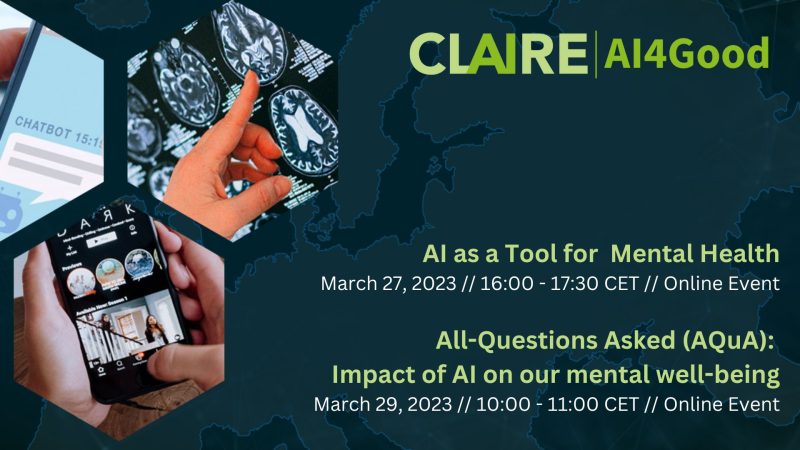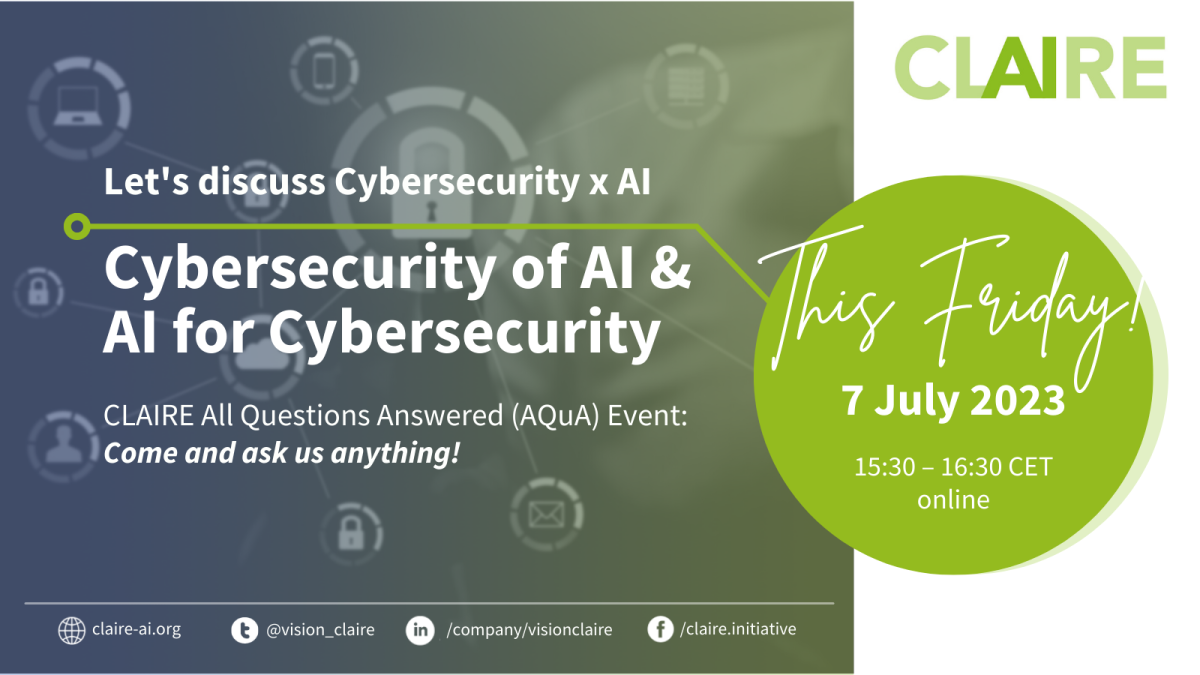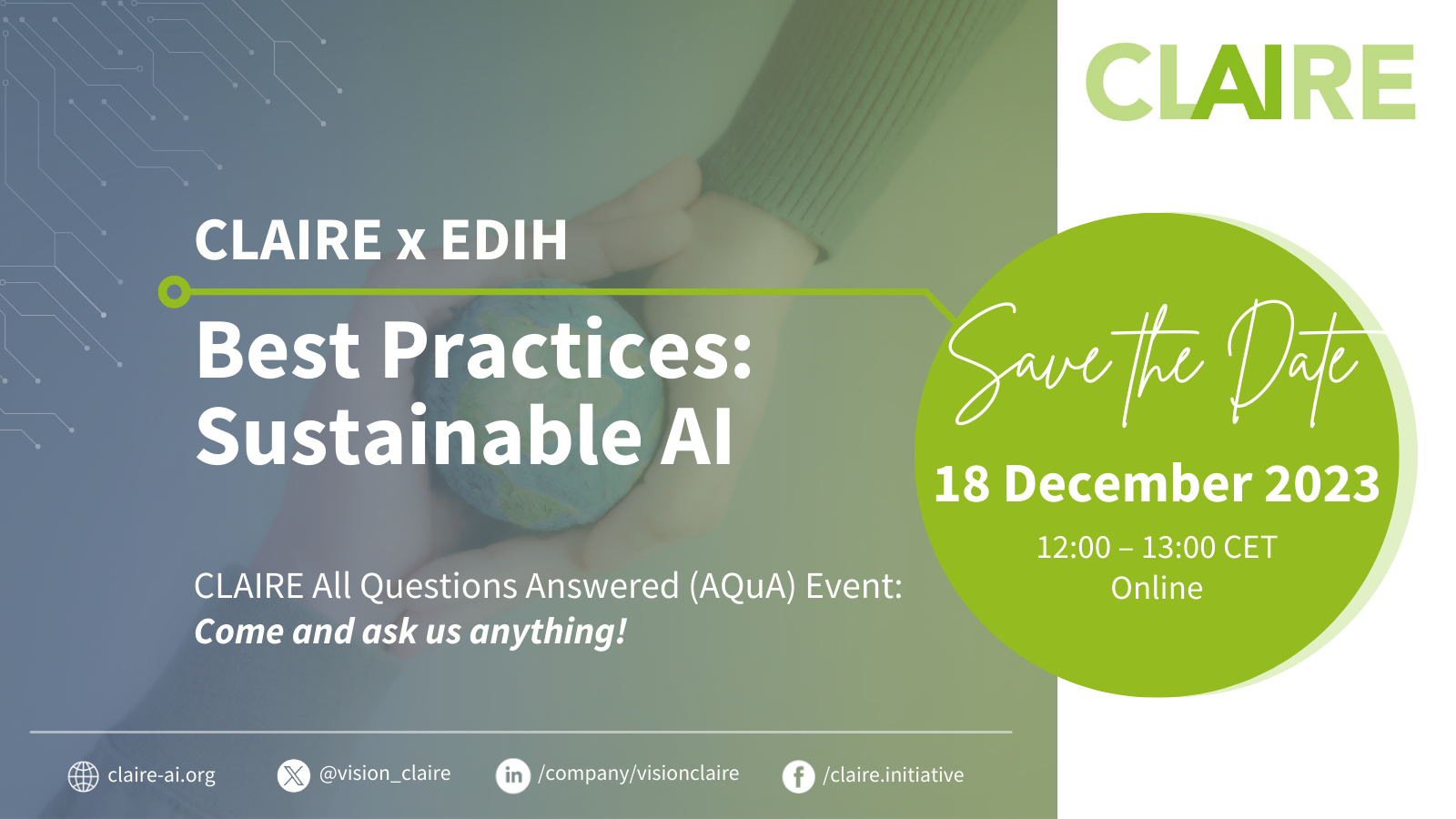Special Interest Group on Ethical, Legal and Social Aspects of AI
The CLAIRE Special Interest Group (SIG) on Ethical, Legal, and Social Aspects of Artificial Intelligence (AI) was created to address the pressing need for deeper insights into the Ethical, Legal, and Social Aspects of Artificial Intelligence. Currently, European society requires laboratories’ technologies to be designed and evaluated on these aspects during the technological development and implementation process, in particular to ensure responsible, sustainable, and trustworthy innovation within the EU. Hence, CLAIRE would lay a missing cornerstone for its members by establishing a Special Interest Group for Ethical, Legal, and Social Aspects of AI.
The CLAIRE Special Interest Group on Ethical, Legal and Social Aspects of Artificial Intelligence aims to:
- Bring people together to discuss Ethical, Legal, and Social Aspects of AI; Create open environment for discussion
- Promoting the AI for Good, AI for All to the CLAIRE community and the public
- Provide repository of useful research and tools
- Support collaboration between members in developing new research and tools
Activities
The Special Interest Group on Ethical, Legal, and Social Aspects of AI engages in a variety of activities designed to promote collaboration, knowledge sharing, and advancement in the field of AI, with a particular focus on ethical, legal, and social considerations. These activities are divided into internal and external categories:
-
Internal Activities:
- Knowledge Sharing: Having a channel for sharing relevant links, courses, knowledge sources, papers, conferences, AI tools, and new initiatives related to ethical, legal, and social issues in AI.
- Ethical Discussions and Dilemma Reflection: Regular discussions on ethical hot topics, sharing perspectives, and reflecting on specific dilemmas in AI, such as bias and fairness. The group also positions itself on these issues.
- Collaborative Efforts and Support: Connect on current work or initiatives to integrate ethical, legal, and social considerations into AI projects, and help each other understand and meet European regulatory demands regarding AI.
-
External Activities:
-
- Workshops and Seminars: Organizing workshops and seminars to teach how to use AI tools ethically and in compliance with legal standards (e.g. the AI Act).
- CLAIRE AQuA(All Questions Answered) Events: Organize CLAIRE AQuA events and disseminate AI Ethics Guidelines and legal frameworks to the public and CLAIRE members through initiatives like CLAIRE BrAInfood.
- Publications and Services: Writing academic articles, whitepapers, and offering services to help integrate these considerations into AI research projects.
- Survey on Ethics in AI: Conduct surveys assessing the perceived importance of ethical, legal, and social aspects of AI among researchers.
- Expert Interviews: Conduct expert interviews on topics related to how regulations, such as the AI Act, are affecting the research field.
-
Members

Iris Merget, Ethics Team Manager at DFKI
The complexity of AI technologies is continuously reaching unprecedented levels, while their integration into countless societal sectors is constantly expanding. In this context, at the European level, ethics represents a vital component in ensuring that AI systems are developed in a trustworthy manner, building trust in the AI technology and its applications, making it more likely to be widely adopted.
By placing ethics at the forefront of AI development and deployment, I strongly endorse we can ensure not only that AI systems are developed with a clear ethical framework, but also that the general approach of AI technology will become effective and responsible on any level.

Carl Mörch, Co-director at FARI
It is very critical to be more educated about technologies from a technical standpoint, but also on how they can impact society. Today Ethics has become very important to understand how to best integrate AI, Data (among others) into very applied domains. And with ever-changing ethics allows us to also define shared values, address dilemmas.

Frederic Heymans, Research at Knowledge Centre Data & Society
Ethical AI is important to me because it is not just about avoiding negative outcomes of applications but actively developing a future where technology enhances human flourishing, respects individual rights, and promotes social justice.

Mihai Maftei, Researcher at DFKI
Artificial Intelligence is experiencing an impressive uptake, creating problem-solving capabilities, and becoming increasingly integrated in all societal sectors.
For me, the accompaniment of the current AI expansion by constant calls for applied ethics reveals that AI ethics is not only a requirement imposed by various authorities, but a vital component to the responsible development of AI-driven technologies, and an effective instrument in generating added value for AI systems.

Nicolo’ Brandizzi, Postdoctoral Researcher at Fraunhofer IAIS
As an engineer, I was always exposed to a world of ones and zeros, trues and falses. So when the concept of ethics in AI emerged, I was confident it would be just another problem to solve with a fixed, indisputable solution.
However, that is not the case when it comes to ethics, or philosophy in general. There is no way to do it “right”, but there is definitely a way to do it wrong. I believe that we, as researchers, have a responsibility to consider the impact of our inventions on society and direct them towards a positive contribution to humanity. For me, ethics is crucial because it points in this direction.

José V. Hernández-Conde, Assistant Professor at University of Valladolid
The emergence of LLMs has rapidly expanded their use in various fields, including as decision-support tools for individuals and organisations.
I am concerned about how LLMs are integrated into decision support systems, especially in scenarios involving ethical issues.
For me, it is essential to ensure that these systems adhere to sound ethical criteria and guarantee the moral autonomy of the user in personal applications, and I believe that in order to guarantee this autonomy, it is imperative to develop AI systems that are aligned and consistent with the ethical beliefs and convictions of the users.

Lisa-Marie Goltz, Student Assistant at DFKI
As a student of philosophy-neuroscience-cognition, ethics holds a profound significance in my pursuit of understanding what constitutes a good life.
I advocate for fair AI that benefits all people, especially woman, workers, individuals with disabilities and/or special needs and children. AI should be a tool to simplify life for everyone, particularly minorities, rather than complicate it.
The ethics of AI is crucial because it ensures that human well-being remains at the forefront of technological advancements. My goal is to ensure that AI serves humanity, enhancing life quality and promoting fairness. Protecting individuals and marginalized groups through ethical AI practices is paramount to fostering a good life for all.

Ulla Coester, Research Assistant at Institute for Internet Security
The increasing and sometimes critical discourse on AI, and currently especially on LLM, and its implications for individuals and society demonstrates the complex and nuanced nature of the topic. It highlights the necessity for a comprehensive, transparent, and ethical approach to AI development.
An open and inclusive discussion on the ethical considerations surrounding AI is imperative. The fundamental requirement for AI is that it must be human-centric and used responsibly.
How to get involved
Interested in joining our SIG Ethics Group on AI’s Ethical, Legal, and Social Aspects? Whether you’re passionate about exploring ethical dilemmas in AI, advocating for legal frameworks, discussing social implications, or participating in workshops and research initiatives, there are numerous ways to participate and make a meaningful impact. Contact us at EMAIL tbd to learn more about how you can actively engage with us in shaping the ethical, legal, and social discourse surrounding AI.
News & Events
Stay updated with the latest developments, discussions and events!








